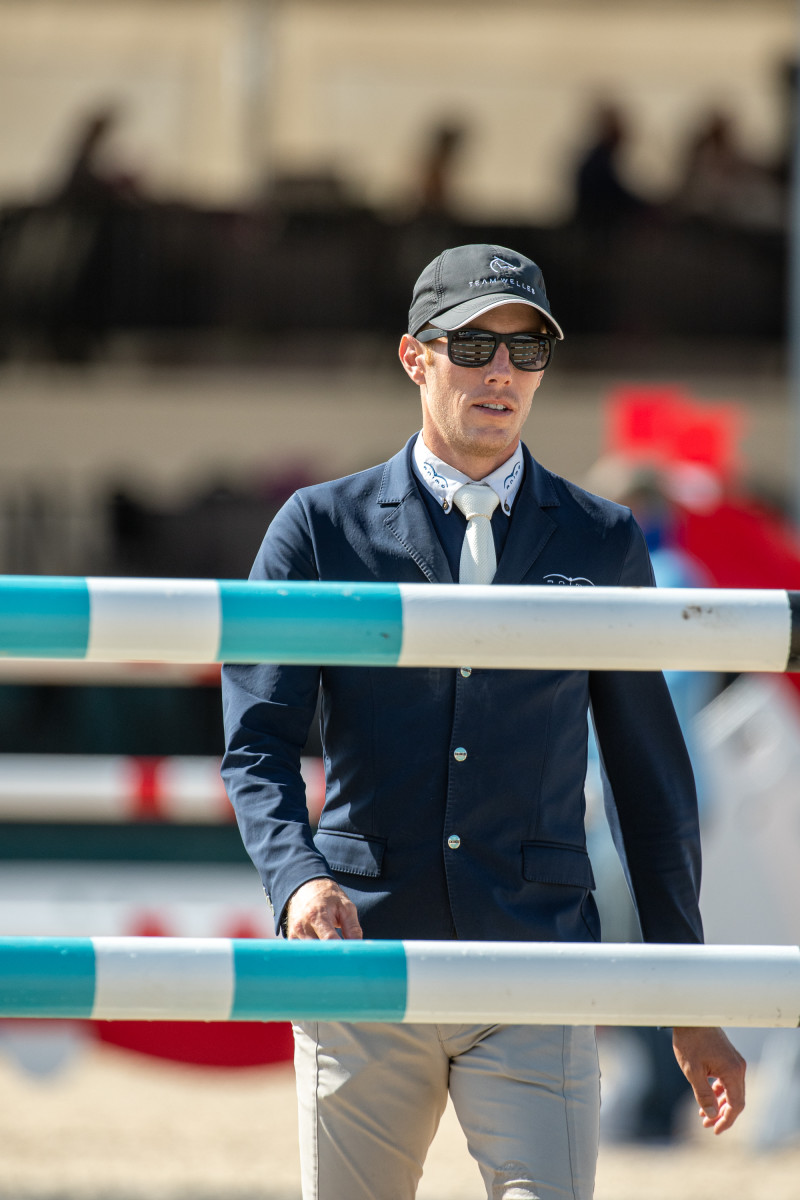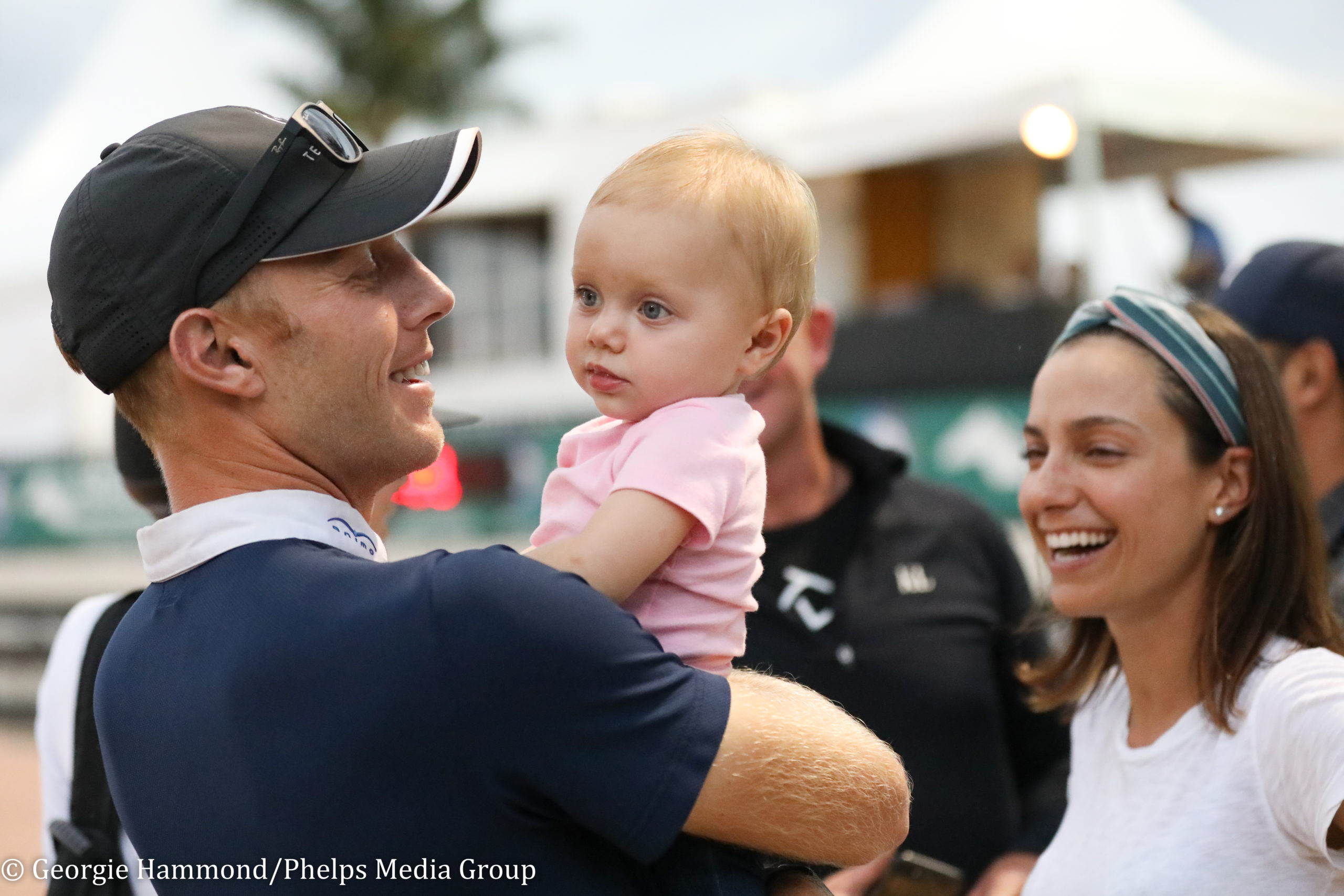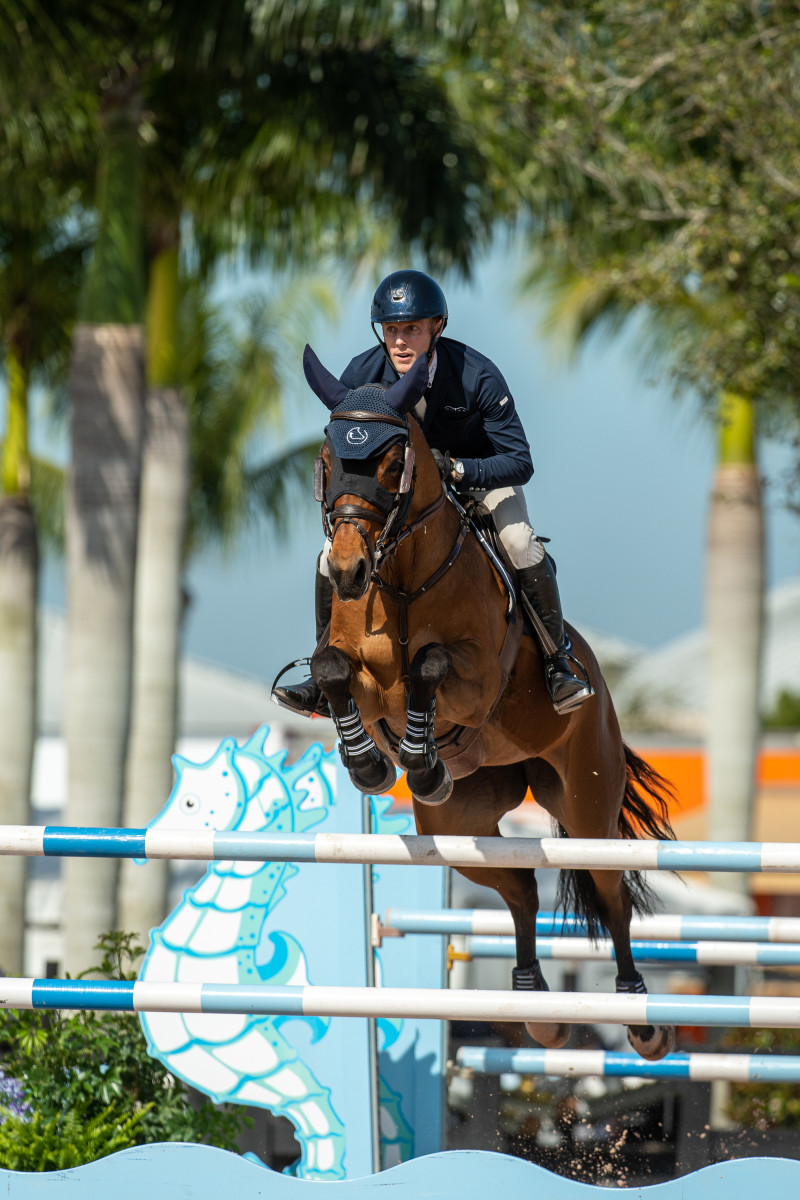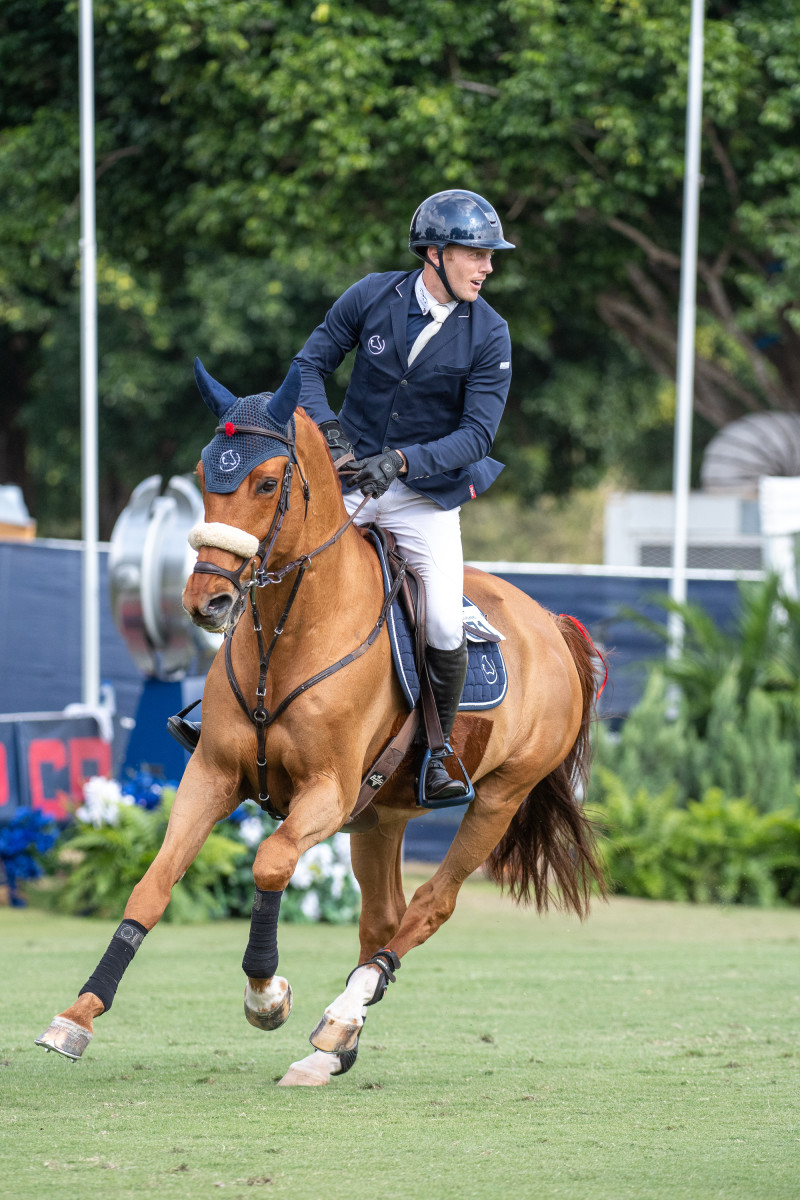Originally from Minneapolis, Minnesota, international show jumper Andrew Welles developed his passion for horses at a young age. He grew up in the sport and eventually trained under equitation and show-jumping trainer Missy Clark and finished out his Junior career with her North Run crew. Andrew took a year off before he started college to train with Olympic gold medalist Chris Kappler, whom he worked with for four years before starting his own training and teaching business in 2010.

He made his first Nations Cup appearances in 2009, representing the United States in Austria and Portugal. He also represented the U.S. at the 2018 Spruce Meadows Masters CSIO*****, and the 2019 FEI Jumping Nations Cup™ Canada held in Langley, British Columbia. Most recently, Andrew finished out the 2019/2020 North American League season by qualifying for April’s 2020 World Cup Final, which has since unfortunately been cancelled due to the coronavirus pandemic. Andrew’s stable, called Team Welles, is a jumper-focused boutique operation based in Wellington, Florida and now also in Mettawa, Illinois which is on the north side of Chicago.
I caught up with Andrew at his base in Wellington at the beginning of January after finishing up a photo shoot for his training article in our spring issue. During our conversation, Andrew shared his overall training philosophy, why he believes there is too much emphasis on “seeing a distance,” what makes him a strong competitor and more.
You can listen to the full interview wherever you listen to podcasts, but in the meantime, here is a snippet of our conversation.
When and how did you first became involved with horses and riding?
AW: I was in second grade. My parents both rode and were involved within the sport, but it wasn’t something I was around every day. I actually had a friend on my soccer team that took riding lessons. We would go to school, then soccer and then he would go to riding lessons. And just situationally a few times, I got a ride home from his mother and we had to stop so he could have his riding lesson on the way home. After a couple times, I was like, “I want to do this!” So, I took a riding lesson with him and he probably stopped 6 months later and here I am today!

What’s your overall training philosophy?
AW: The bedrock of what this comes down to is the horses are athletes and we need to treat them that way. I think everything we work on, we need to keep that mindset. There are only so many jumps a horse can jump. We are asking them to do something unnatural in itself. I don’t think that they were necessarily intended to jump over 1.60-meter fences. They do it really well and the horses really enjoy it, but I think we always need to have that in the back of our mind.

For me, fitness is the core principle. The horses have to be fit; they have to be strong without overdoing it. It needs to be intelligent fitness. I try to relate how I feel after I go to the gym to how they would feel. It’s easy sometimes to get running down a rabbit hole. You’re trying to train something and things aren’t working out. Even for me as a professional, I have my assistant, Eric, and Alex [Andrew’s wife] and Mario, who is in charge of my horses. Sometimes there’s a collaboration between all of us and they can say, I just think they’re not getting it today. You need to have checks and balances within the barn and know as a team what the right amount of work is and the timing of the work for that fitness program.
On top of the fitness, we talk about the rideability. I think the two go hand in hand because in order for horses to carry themselves correctly, they need to be strong, but they need to be strong with the right muscles. You can’t just work them and expect them to be strong to do a totally different kind of work. If you go out and say, I’m going to ride them for 20 minutes or 30 minutes and do ‘X’ amount of trot and ‘X’ amount of canter, you can’t expect that’s going to get the horses fit for what they need to do. They need to be strong to canter correctly so that they develop their muscles correctly to hold their canter the way you want them to be able to rock back and jump the way you want them to.
You’ve talked about how one of the mistakes you see is riders trying to see their distance or find their distance. Could you talk about your thoughts on that?
AW: We can’t come down to fences on a complete miss. Distances are very important and I can say this because I struggle with this myself—I think it’s a little bit of a flaw in the American system that because of the hunters, we become so focused on distances from an early age. To ride the hunters and equitation correctly, it’s the same principles I would want to teach. But I think we start to look for distances a lot earlier than we should. If you’re looking for your distance before you’ve even turned to the fence, it’s very likely you’re going to end up altering your canter as you’re going through the turn to meet a certain takeoff spot on the ground. There’s a lot of variables as you come through the turn. The horse might fall behind you, he might drift out to one side, so all of a sudden you’ve married yourself to a certain distance and you’ve let the canter go out the window just to get to that spot.

If you watch the best riders in the world, they really focus on having a good canter. You see very small adjustments from them and it looks like they’re finding perfect distances to the fences. If you have a proper canter and you come through the turn, the horse on his own will size up the fence. The horse will help show you the distance. It might mean that you have to step forward to it a little, or it might mean that you have to collect and compress the horse a little bit. But if you can keep that pendulum in a small swing with just small adjustments, you’re going to keep a more consistent canter throughout the course and the horse is going to be able to help you gauge the fence instead of you trying to do all the work for them. If you’re constantly changing the canter, even if the horse sees the fence, they’re not looking for a distance because they’re feeling you making the changes already. It’s the hardest thing to trust that they are going to do that, but I promise they will, especially if you give it time.
What do you think makes you a strong a competitor?
AW: I’m detail-oriented. I think talent is a little bit overrated. I think you need to have a strong work ethic and you need to have a good system and training with your horses. And that system is part of your whole team. I think what makes me successful is not just me, but the whole team behind me. In the ring, I think I do a good job of making a good plan and trying to determine what the best way is to jump a course clear. From a planning standpoint, that helps me to go in there and instead of focusing on just the results, you’re just thinking about executing your plan and going through the process the best way you can.

What do you think makes a good horseman?
AW: You need to be compassionate. You need to be compassionate towards the horses and realize that they’re not dirt bikes. They’re partners of yours. They have emotions and you need to meet them halfway sometimes. You need to take a step back a lot of times and think, is this safe what we’re putting them through and also remember the fact that what we’re asking them to do is a bit unnatural. You can’t let your frustration get ahead of you with the horse. In the end I think the unfortunate side of this is a lot of people view horses as expendable to get results. In the end, I’d much rather—I want to win—but having a healthy and happy horse is more important to me than doing whatever it takes just to get a blue ribbon. Maybe you miss out on 1 or 2 classes that way, but over the course of your career, you’re going to win a lot more by looking at them as true partners. I would be absolutely gutted if I felt like I disregarded the well-being of a horse just for the sake of a result. In order to really be a true horseman, you can’t just say that. It needs to be something that’s a part of you.

For more from Andrew, check out his training article, “Control the Canter for Better Courses” in the Spring 2020 issue and listen to the full podcast here.
About the Practical Horseman Podcast
The Practical Horseman podcast, which runs every other Friday, features conversations with respected riders, industry leaders and horse-care experts to inform, educate and inspire. It is co-hosted by Practical Horseman editors Sandy Oliynyk and Jocelyn Pierce. Upcoming episodes are with the legendary show jumper, Eric Navet, rising star Brian Moggre and hunter rider Hannah Isop. Find the podcast at iTunes, Stitcher and Soundcloud or wherever you get your podcasts.






